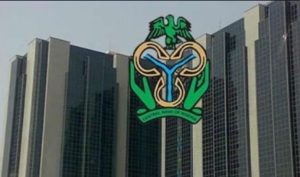The new ‘Strategic Agenda for the Naira’ was announced by the Central Bank of Nigeria, generating a healthy national debate. Before we undertake a nationwide enlightenment program (beginning November 2) to educate the public on the new policy, it is important to clarify some of the issues/questions that are emerging.
Needless to emphasize that to appreciate the full impact of the new policy on the Naira/national economy, we need to take the 4-point agenda as a package. As a package, the new agenda will:

better anchor inflation expectations,
strengthen public confidence in the Naira,
make for easier conversion to other major currencies,
reverse tendency for currency substitution,
eliminate higher denomination notes with lower purchasing power,
reduce the cost of production, distribution, and processing of currency,
promote the usage of coins and thus a more efficient pricing and payments system,
promote the availability of cleaner notes,
deepen the Forex market,
ensure more effective liquidity management and monetary policy,
convertibility of the Naira and hence greater confidence in the national economy and lead to greater inflow of foreign investment
position the Naira to become the ‘Reference currency’ in Africa.
However, most of the questions so far pertain to only one aspect of the agenda, i.e., currency Re-denomination. We have monitored the reactions so far, and note that the concerns/questions raised so far are similar to the ones raised in all the countries that have undertaken re-denomination, including Ghana that is still implementing it now. We clarify some of the concerns as follows:
???????????????? ???????? ???????????????????????????????? ?????????????????????????????????????????????????????????
Currency redenomination is the process where a new unit of money replaces the old unit with a certain ratio. It is achieved by removing zeros from a currency or moving some decimal points to the left, with the aim of correcting perceived misalignment in the currency and pricing structure, and enhancing the credibility of the local currency.
???????????? ???????????????? ???????????? ???????????????????? ???????? ?????????????????????????????????????????????????????
It is by dropping two zeros from the currency or moving two decimal places to the left. The name of the national currency will still be the Naira. However, during the transition period, the existing Naira will be referred to as the “Old Naira”, and the new one to be called the “New Naira”. After the transition period, the word “New” may be dropped. For example, the following equivalents will obtain as we re-denominate:
???????????? ????????????????????
(????.????, ???????????????????????????????? ???????????????????? ???????? ???????? ????????????????????)
???????????? ????????????????????
(???????? ???????????????? ,???????????????????????????? ???????????????? ???????????????????????? ???????????????????? ???????? ???????????????????? ???????????????????????????????????????????? ???????? ???????????? )
50 kobo Half kobo**
N 1 = 1 kobo coin
N 2 = 2 kobo coin
N 5 = 5 kobo coin
N 10 = 10 kobo coin
N 20 = 20 kobo coin
N 50 = 50 kobo coin or note***
N 100 = N 1 note
N 200 N 2 note**
N 500 = N 5 note
N 1000 = N 10 note
N 2000* = N 20 note
???????????? ???????????????? ???????? ?????????????????
The ‘new Naira’ coins and notes will be different from the existing ones i.e. in design, appearance, security features, etc.
All Naira assets and liabilities (including bank deposits), prices, fees, rents, and contracts (including salaries and wages) will be re-denominated by dropping two zeroes or moving two decimal points to the left.
During the ‘transition period’ prices will be quoted in both the ‘new Naira’ and the ‘Old Naira’ and everyone will choose whether to pay in the new or old Naira. These five months will be allowed so that everyone will get familiar with the conversion, and it will become self-evident to everyone why he/she would prefer to transact in the ‘new Naira’ rather than the ‘old Naira’. For example, if a bag of garri sells for N2,000 (old Naira), the price in ‘new Naira’ will automatically be N20. The customer will choose to pay either N2000 in old Naira or N20 in the ‘new Naira’. In the supermarkets and formal markets, prices will be displayed in both ‘old’ and ‘new’ Naira. In the informal markets where prices are negotiated, the negotiation could be done in the ‘old Naira’ as usual and converted into the ‘new Naira’ if the customer wishes to pay with the ‘new Naira’. This will ensure that prices do not rise due to rounding-up. The five months are also needed for everyone (formal and informal sectors) to become fully familiar with the conversion. It will become obvious to everyone that N50,000 of the ‘old Naira’ has the same purchasing power as N500 of the ‘new Naira’. The question then would be: why carry N50,000 of old Naira when N500 of the new Naira will buy you the same thing? Consequently, if you have N50,000 in your bank account, it will automatically become N500 in the ‘new Naira’ i.e. if you want to withdraw in the ‘new Naira’ or you can still withdraw N50,000 in ‘old Naira’ during the transition period (January 2024). Similarly, someone whose monthly salary is N50,000 can choose (during the transition period) whether to withdraw and spend the N50,000 in ‘old Naira’ or N500 in the ‘new Naira’. Both would buy him/her the same value of goods and services.
Examples of price equivalents in the new and old Naira could be:
???????????????? ???????????? ???????????? ???????????????????????????? ???????????????? ???????????????????? ???????????????? ???????????????????????? ???????? ???????????????????????????? ???????????????? ???????? ???????????????????????????? ???????? ???????????? ???????????????????????????????????????????????????????? ???????? ???????????????? ???????????????????? ????????????????????????.
House rent (e.g. a flat in some parts of Nigeria) N5000 per month N50 per month
Stock price of a company Assume it is, say:
N20 or N80
20 kobo or 80 kobo
Airline ticket for domestic flight N12,500 = N125
Fuel Price N500 = N5
Exchange rate: N to US$ Assume it is say:
N125
Or N130
Or N100 to US$1.
N1.25 = US$1
Or N1.30 = US$1
Or N1 = US$1
This decision has been taken by the cbn by the directive of President Bola Ahmed Tinubu to reduce the surfering of Nigerians and also slow down inflation. If you have the old Naira start getting ready to switch to the new Naira, this message is meant to prepare Nigeria for the changes ahead. It needs to be shared to ensure everyone is well prepared for the new Naira notes. Nigerians
Renowned hope is coming.





